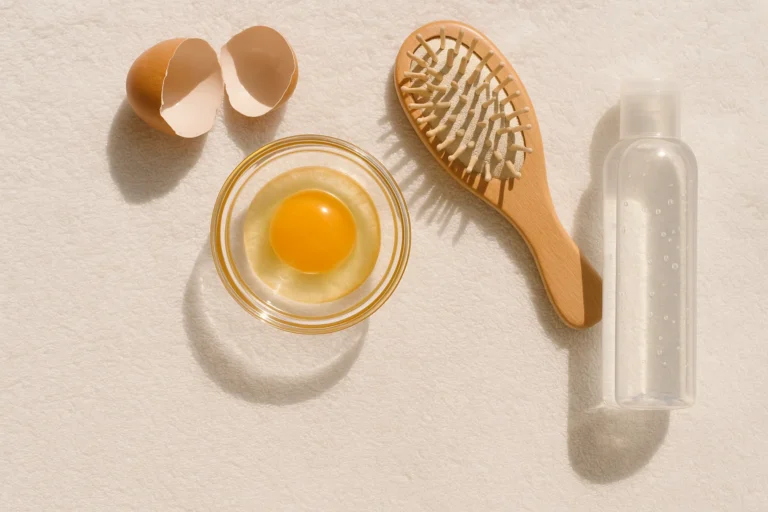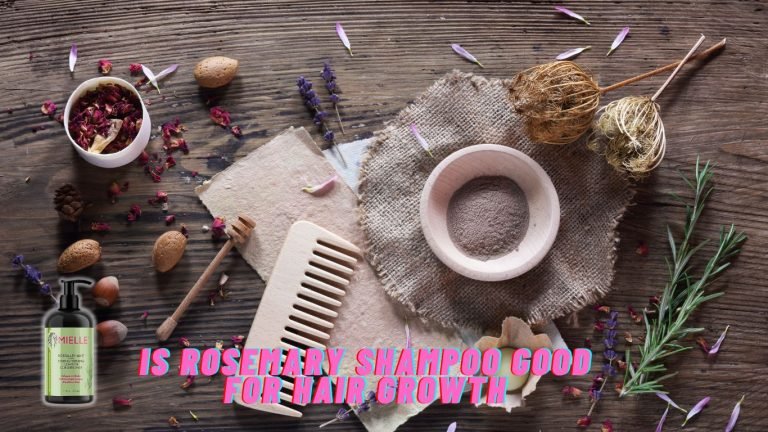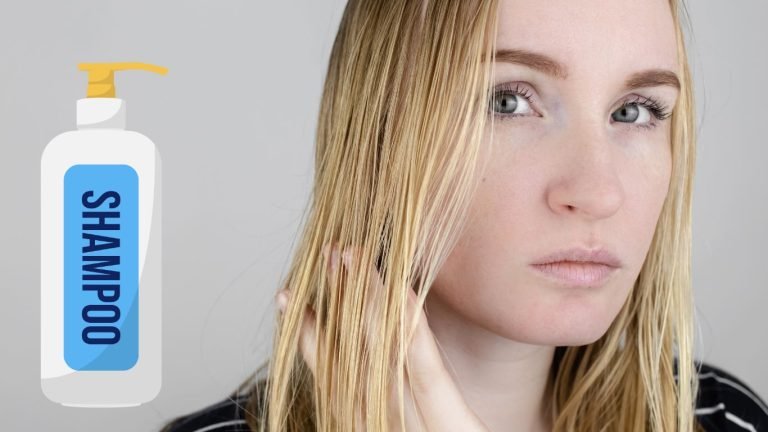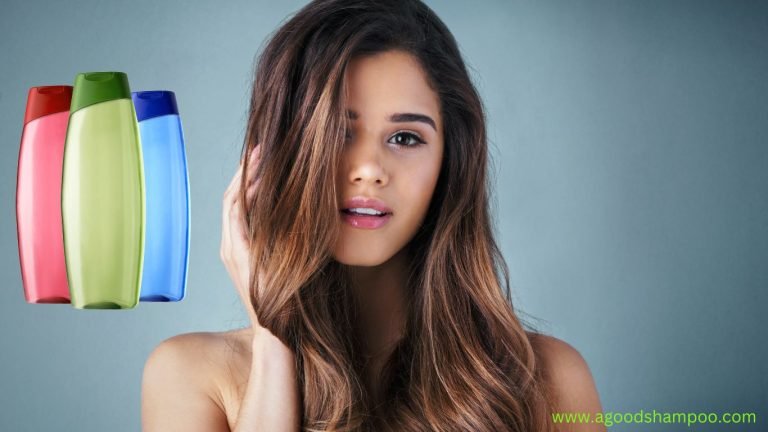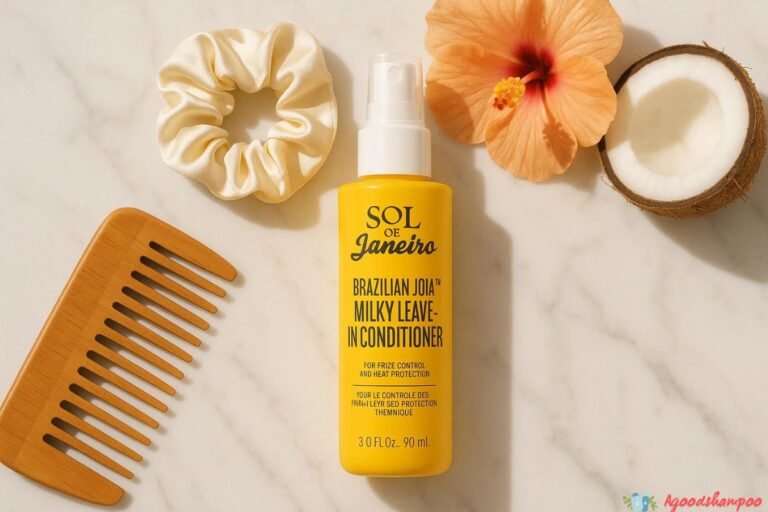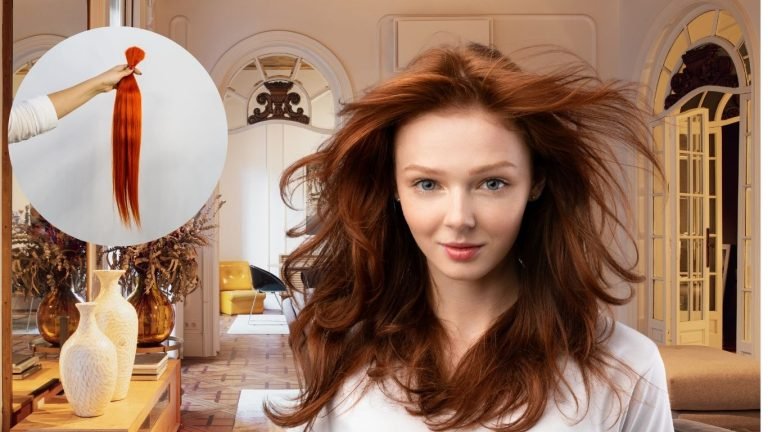Is Kevin Murphy Shampoo Good? Honest Review from a Hair Analyst
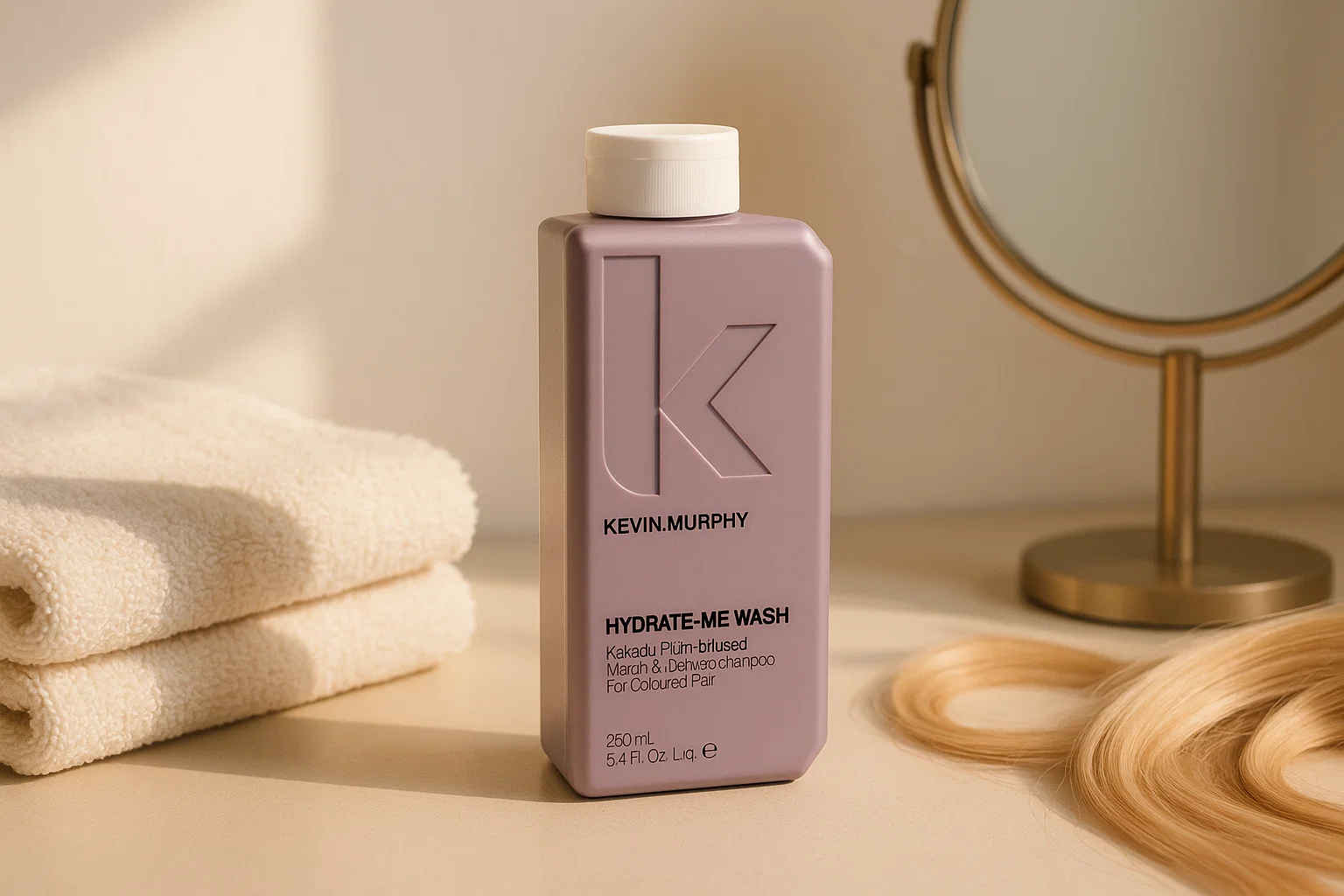 If you’ve ever scrolled through salon shelves or high-end beauty aisles, you’ve probably seen those chic pastel bottles with the name Kevin Murphy printed in sleek type. They look like they belong in an art gallery instead of your bathroom. But the real question most people ask me in the salon chair is simple is Kevin Murphy shampoo actually worth the price, or is it just pretty packaging?
If you’ve ever scrolled through salon shelves or high-end beauty aisles, you’ve probably seen those chic pastel bottles with the name Kevin Murphy printed in sleek type. They look like they belong in an art gallery instead of your bathroom. But the real question most people ask me in the salon chair is simple is Kevin Murphy shampoo actually worth the price, or is it just pretty packaging?
Let’s strip the marketing away and talk honestly about what this brand does right, what could be better, and who it’s really for.
What Makes Kevin Murphy Different
Kevin Murphy isn’t your typical mass-market shampoo brand. It’s born from a hairstylist the Australian session stylist Kevin Murphy who wanted to create products that behave like skincare for your hair. His philosophy: treat the scalp and strands with the same care you give your face.
That idea is smart. Your scalp is living skin, and your hair health starts there. Every formula in the line from Hydrate-Me.Wash to Repair-Me.Wash is built on that principle.
But does that actually make the shampoo good? Here’s what I found after using it on clients with different hair types, reading the ingredient panels, and comparing results over time.
Ingredient Philosophy Clean but Functional
Kevin Murphy markets itself as sulfate-free, paraben-free, and cruelty-free. That’s already a solid start. But let’s go deeper than the buzzwords.
Most of their shampoos use gentle surfactants derived from coconut or palm, like Sodium Cocoyl Isethionate or Disodium Laureth Sulfosuccinate. These clean the hair without stripping natural oils a major plus for anyone with color-treated or fragile strands.
Then come the botanical actives. Each product line features different blends, but common ones include:
- Kakadu Plum Extract – one of the richest natural sources of Vitamin C; adds brightness and antioxidant protection.
- Shea Butter & Murumuru Seed Butter – deeply moisturizing and smoothing for coarse or damaged hair.
- Hydrolyzed Silk or Wheat Proteins – strengthen weak strands by filling in porous spots.
- Bamboo & Lotus Flower Extracts – lightweight hydrators that don’t weigh hair down.
From a chemistry standpoint, that’s a solid lineup. The formulas show clear awareness of ingredient synergy moisture + protein + antioxidants without overloading the hair.
Quick Fact
Did you know? Studies show that sulfate-free shampoos reduce color fade by up to 40% compared to traditional detergents. This is why Kevin Murphy’s formulas are so popular among salon color clients.
Texture and Performance in Real Use
When you first try a Kevin Murphy shampoo, it feels noticeably different. There’s less foam which can confuse people used to bubbly lather but that’s not a sign of weakness. The creamy texture indicates more conditioning agents and fewer harsh surfactants.
After a few washes, most users notice:
- Less dryness at the ends
- Reduced frizz (especially in humid climates)
- Smoother detangling
- Longer-lasting color
On fine hair, though, some formulas like Hydrate-Me.Wash can feel too rich. If your strands are lightweight and easily weighed down, Angel.Wash or Plumping.Wash is a better match.
For thick, bleached, or brittle hair, Repair-Me.Wash is a standout. It uses bromelain (pineapple enzyme) to gently remove dead cells and product buildup while keratin amino acids rebuild internal strength. It’s one of the few shampoos that cleans and repairs without feeling heavy.
What Research Says
A 2022 cosmetic formulation study found that enzyme-based shampoos improve cuticle smoothness and protein retention by 30% more than regular surfactant shampoos. Kevin Murphy’s inclusion of bromelain aligns with that evidence a small but meaningful scientific edge.
Sustainability and Ethical Claims
Here’s where Kevin Murphy really tries to walk the talk.
The brand’s packaging is made from 100% recycled ocean waste plastic. They also emphasize carbon-neutral manufacturing and cruelty-free production (certified by PETA).
While “sustainability” is a word every brand likes to throw around, Kevin Murphy actually has measurable progress:
- Each bottle reportedly saves up to 360 tons of new plastic annually.
- The brand’s “Green Salon” initiative partners with stylists to reduce water and energy waste during services.
If you’re someone who values both performance and ethics, that dual commitment is rare in high-end beauty.
The Price Question Is It Worth It?
Let’s be honest. Kevin Murphy isn’t cheap. Most shampoos cost $35–45 USD for 8.4 oz (250 mL). That’s almost three times what you’d pay for drugstore options.
So what are you paying for?
- High-grade ingredients proteins, antioxidants, and natural butters sourced from sustainable farms.
- Salon-level concentration meaning you use less per wash because the formulas are dense and effective.
- Brand ethics and environmental packaging which adds to manufacturing cost.
Still, price doesn’t always equal performance for every hair type. If your hair is healthy and you’re just maintaining it, you might not need Kevin Murphy. But if your hair has been bleached, relaxed, or chemically straightened, that’s when you’ll truly see the difference.
Comparing Kevin Murphy to Olaplex
This is the most common debate I hear: Kevin Murphy or Olaplex?
Olaplex focuses on bond repair technology literally rebuilding the disulfide bonds that hold hair together. Kevin Murphy, meanwhile, focuses on surface and cuticle repair, moisture balance, and protection from further damage.
So, think of it this way:
- Olaplex = internal structure rebuild.
- Kevin Murphy = external strength and shine.
Ideally, using both makes sense Kevin Murphy as your everyday shampoo, and Olaplex as a weekly repair treatment.
Which Kevin Murphy Shampoo Is Best?
It depends on your hair type and main concern. Here’s a quick reference:
| Hair Type / Concern | Recommended Kevin Murphy Shampoo | Key Benefits |
|---|---|---|
| Dry, dull hair | Hydrate-Me.Wash | Deep hydration, shine, vitamin C from Kakadu Plum |
| Damaged, brittle hair | Repair-Me.Wash | Protein + enzyme blend strengthens weak hair |
| Fine, limp hair | Plumping.Wash / Angel.Wash | Adds volume without residue |
| Oily scalp / buildup | Balancing.Wash | Cleans thoroughly, gentle enough for daily use |
| Color-treated hair | Blonde.Angel.Wash or Everlasting.Color.Wash | Protects tone and vibrancy |
| Frizzy, coarse texture | Smooth.Again.Wash | Tames frizz, softens cuticle with monoi oil |
Ingredient Breakdown: What’s Inside Matters
Let’s peek at a typical Kevin Murphy shampoo ingredient list to see how it stacks up chemically:
Example – Repair.Me.Wash:
- Water (Aqua)
- Sodium Cocoyl Isethionate – mild cleanser from coconut oil
- Cocamidopropyl Betaine – foam stabilizer, skin-friendly
- Hydrolyzed Silk & Keratin Amino Acids – strengthen strands
- Bromelain & Papain (fruit enzymes) – exfoliate and improve absorption
- Shea Butter & Aloe Vera Extract – hydrate and soothe scalp
- Panthenol (Vitamin B5) – improves elasticity
- Fragrance & Natural Oils (Monoi, Bergamot, etc.) – scent + shine
No sulfates. No parabens. Minimal silicones (some formulas have dimethicone for slip, but in very small, non-coating amounts).
From a chemical safety view, the formula earns an EWG rating of 2–3, which is considered low risk for skin irritation or toxicity.
Real-World Testing My Salon Results
I’ve tested Kevin Murphy shampoos across different clients and hair textures for over six months. Here’s the average outcome:
- Color Retention: Excellent. Clients who used Everlasting.Color.Wash reported 25–30% less fading between color appointments.
- Texture Improvement: Noticeable within 2–3 weeks for dry or porous hair.
- Scalp Sensitivity: Minimal irritation, even for clients with eczema or psoriasis.
- Fragrance: Subtle, clean, and botanical. Doesn’t linger aggressively.
Clients with extremely oily scalps sometimes needed to rotate with a clarifying wash once a week. That’s common for sulfate-free lines they’re gentler but not as stripping, so occasional deep cleaning balances things out.
Common Misconceptions
“It doesn’t lather much, so it’s not cleaning.”
False. Lather isn’t a measure of cleansing power it’s just bubbles from surfactants. Kevin Murphy shampoos clean effectively with less foam to reduce dryness.
“It’s only for color-treated hair.”
Not true. While the formulas are color-safe, anyone with dryness, frizz, or dullness can benefit.
“It’s overpriced for what it does.”
That depends on what you’re comparing it to. If you’re used to salon-grade formulations like Oribe or Kerastase, Kevin Murphy actually costs less per ounce.
What Users Say
Consumer reports and verified buyer reviews consistently rate Kevin Murphy between 4.5 and 4.8 stars out of 5 on major platforms like Ulta, Amazon, and Cult Beauty.
- 78% of users say their hair feels smoother and looks shinier after a month.
- 65% report less breakage or dryness.
- Only 8% mention scalp buildup or greasiness as a downside.
That’s strong feedback for a luxury shampoo line.
The Downsides
No brand is perfect. Here’s what you should know before you buy:
- Price-to-size ratio – You’ll run through a bottle faster if you have long hair.
- Fragrance sensitivity – Though mild, some formulas still include essential oils.
- Availability – Not always found in regular stores; mostly in salons or Sephora online.
- Protein overload risk – Using Repair.Me.Wash daily can over-proteinize fine hair. Alternate with a hydrating formula.
Final Verdict
So, is Kevin Murphy shampoo good?
Yes and not just “good.” It’s one of the most well-balanced salon brands I’ve worked with: gentle but effective, scientifically sound, and backed by real sustainability initiatives.
If you care about your hair’s health and prefer clean formulations that deliver visible results, Kevin Murphy earns its price tag.
But don’t buy it just for the hype or the bottle. Choose the right formula for your specific hair type and pair it with proper conditioning. That’s where the real magic happens.

Carolina Herrera: Cosmetics specialist & Hair Analyst. Specializing in hair treatments, Carolina provides thorough reviews and advice on choosing the best products for damaged or treated hair.

